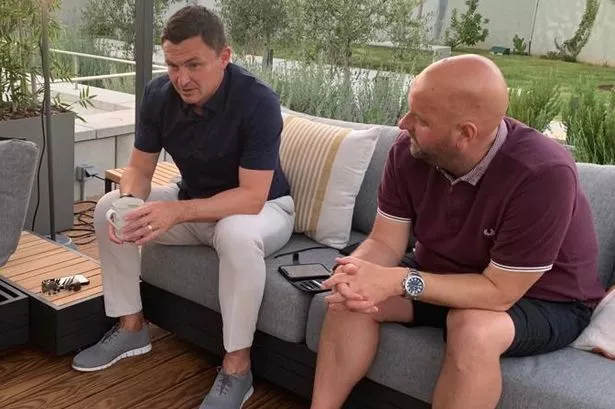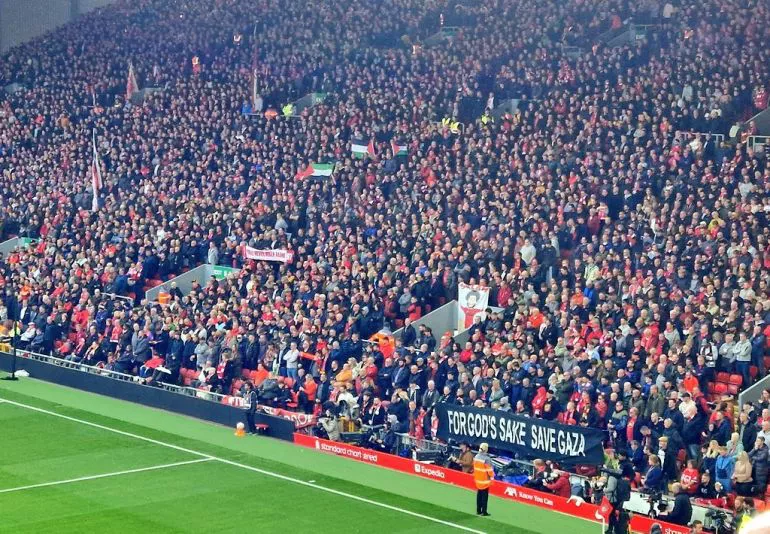14 players for the Blades, including striker Oli McBurnie and club captain John Egan, are entering the final year of their contracts.

Among the most prominent players with contracts expiring in the summer are Sheffield United’s Oli McBurnie and John Egan.
Whenthe next transfer market opens in January, Sheffield United CEO Stephen Bettis is not ruling out a repeat of the Sander Berge and Iliman Ndiaye incident since they must take into account the “reality of football.”
Talks have begun with some of the 14 Blades players whose contracts are currently in their last year.
They found themselves in a difficult position with lliman Ndiaye and Sander Berge last month, who were both sold after failing to agree new deals.
It was a business decision that saw the board cash in rather than lose their two star players on a free and the money from those sales was reinvested into the team.
Sheffield United could find themselves in a similar scenario at the turn of the year if some of those whose deals expire next summer are subject of transfer interest.
Assets such as Daniel Jebbison and Oli McBurnie are among those who the club will be looking to tie down and the pair have not been short of transfer interest in recent months.
Others in their final 12 months include Jordan Amissah, Jayden Bogle, Ismaila Coulibaly, Max Lowe, Ben Osborn, Wes Foderingham, John Egan, Adam Davies, Chris Basham, George Baldock, Oliver Norwood and John Fleck.
The hope is that those talks with players who United want to tie up beyond this season are a success but Bettis admits the club cannot rule out having to make a similar call to the ones they made with Berge and Ndiaye if those talks don’t go to plan.
With the club operating as self-sustainable it cannot afford to lose players of value for nothing at the end of their contracts and, as a result, says all business decisions have to be taken seriously.
“That’s football, the reality of football,” he said yesterday in his latest round table chat with local media.
“We’re not the only club in that position. Harry Kane is a prime example. Spurs lost him for pretty much the same reasons we lost Iliman.
“We’re faced with those challenges every day and have to manage them to the best of our abilities.
We will lose players because they’re out of contract and because we sell them when they have a year left, of course we will, but we’ll also extend some.
“It’s business and that’s the reality of the situation. We’re reviewing the players and have reviewed them extensively before.
Discussions have already been had with some of those players and discussions will continue to be had with those players.
“Don’t think we’re sat here when players get to one year left and then we decide to dust off the chequebook and have a look at it. We’re looking at contracts every season and reviewing them.
Iliman was offered a contract the season before and during the season, all of which he turned down.
“There was a desire from the player and agent to have control over the next step and I understand that.
They felt there was a next step for Iliman which was away from this football club because they believed, as we all do, that he has the ability to go on and be bigger and better and needed a different stage to do that.
“They were very clever about the way they managed it and the blame can’t always just be put at the club’s door.
Equally, we can’t just be writing cheques for any amount that any plater wants to stay because there wouldn’t be a club here. We’d be broke.
“Ultimately, we have budgets and we have to be sustainable in the way we work. If the parameters don’t work for us then we can’t do it and we have to accept that.
The next step is maximising the return we get from that, before his contract expires and utilise that money well in the transfer window and go again.



